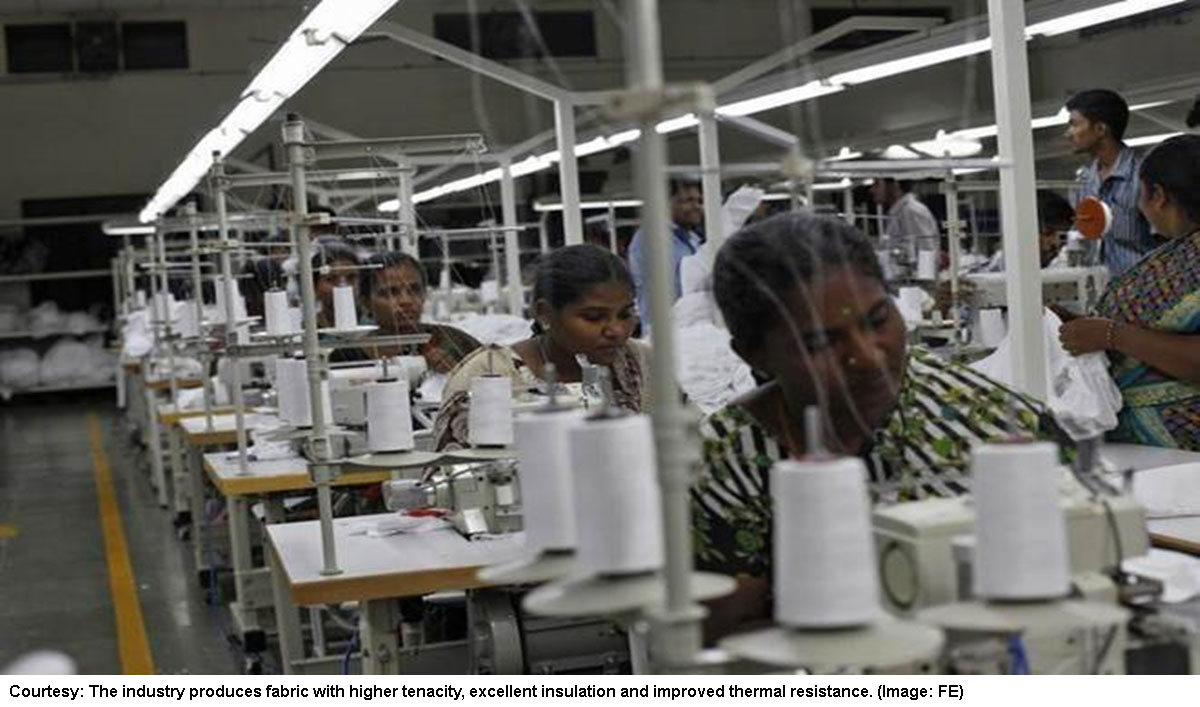
Category: TECHNICAL TEXTILES
Country: India
The technical textile industry is largely associated with manufacture of specialised textiles and apparels produced through technological modification of natural and man-made fibres.
By Abhinay Kumar
May 31, 2023 02:45 IST
India’s target to raise the turnover of the domestic technical textiles sector to $40 billion by 2024 is set to be missed a wide margin, due to a variety of reasons including insufficient R&D and innovation.
The sector clocked a good annual growth of 8-12% in recent years, but it was still worth only $21.95 billion in FY22.
According to Ashwin Thakkar, vice-president, Textile Association of India, the country lags behind in the manufacturing of high-performance fibres, which are used in almost all the sectors of manufacturing, including healthcare. “India meets most of its high-performance fibre demands through imports. Vietnam, South Korea and Taiwan are doing better than us,” he said.
PP Raichurkar, director, MANTRA, a Surat-based independent textile research body, said, “The ongoing research in technical textiles is going to play a crucial part for the future of the textile industry. In the coming times, the demand for medical, biodegradable, industrial, sports, healthcare, automobile and housing textiles will dominate the textile industry.”
The technical textile industry is largely associated with manufacture of specialised textiles and apparels produced through technological modification of natural and man-made fibres. The industry produces fabric with higher tenacity, excellent insulation and improved thermal resistance. These new generation fabrics including nomex, kevlar, spandex, etc are used extensively in the healthcare, automobile, industries, housing and security industries.
According to a recent report by the textile ministry, the global technical textile market, in 2020, was valued at $260 billion and is expected to cross $300 billion by 2025. The driving factors for the industry will be new application areas like innovative R&D, climate change, useful physical properties of technical textiles and the shift from natural to manmade fibers.
The ministry further noted that though India ranks among the most important textile players globally, it is still a small segment with 10-12% share in the overall textiles & clothing industry. In many developed countries, technical textile constitutes anywhere between 30-70% of total production.
Export of technical textiles stood at $2.85 billion in FY22, up 28.4% on year, while imports came in at $2.46 billion, up 44% on year, reflecting a growing reliance on imports to meet domestic demand.
Packtech (41%), indutech (11%), mobiltech (10%), buildtech and hometech (10%) contribute more than two-thirds of the Indian technical textile sector, according to the ministry report.
Commenting on the future prospects of the sector, Thakkar said, “Nano fibre, filtration fabric and carbon nanotube are the emerging areas in the sector. Recently, tech giant Google and textile brand Levi’s have created a jacket using high-performance fibre which can be used for health-monitoring purposes. Nowadays, a specific part of hernia transplantation is being made with the use of technical textile. This is the indication that technical textile has a very bright future ahead.”
The National Technical Textile Mission plans to invest `1,480 crore for the growth of the industry, of which `1,000 crore will be spent on research on development.
Welspun group, SRF, Garware Technical Fibers and Arvind are the leading players in Indian technical textile industry. Pertinently, hometech and packtech are the two segments of technical textile where the production is more than the consumption in domestic markets.
Arvind Group’s advanced materials branch states that “technical textile is going to be the important catalyst in solving the growth and development ambitions of the country and the group endeavors to branch out into other areas of materials which use textile as backbone”. Similarly, the Welspun website states that the company caters to consumer demands through innovation and technology, and aims to achieve inclusive and sustainable growth in this niche sector.
Courtesy: Financialexpress.com
Copyrights © 2025 GLOBAL TEXTILE SOURCE. All rights reserved.